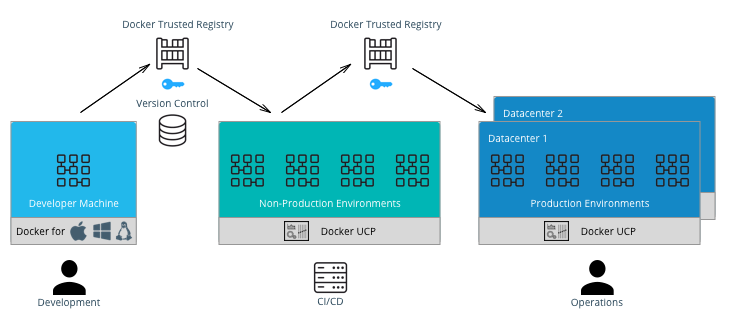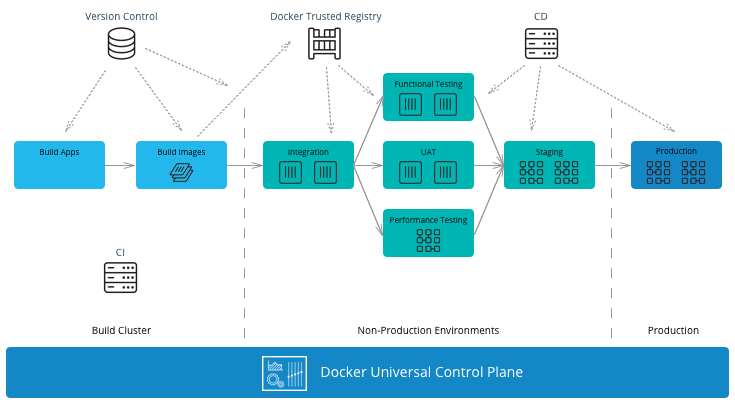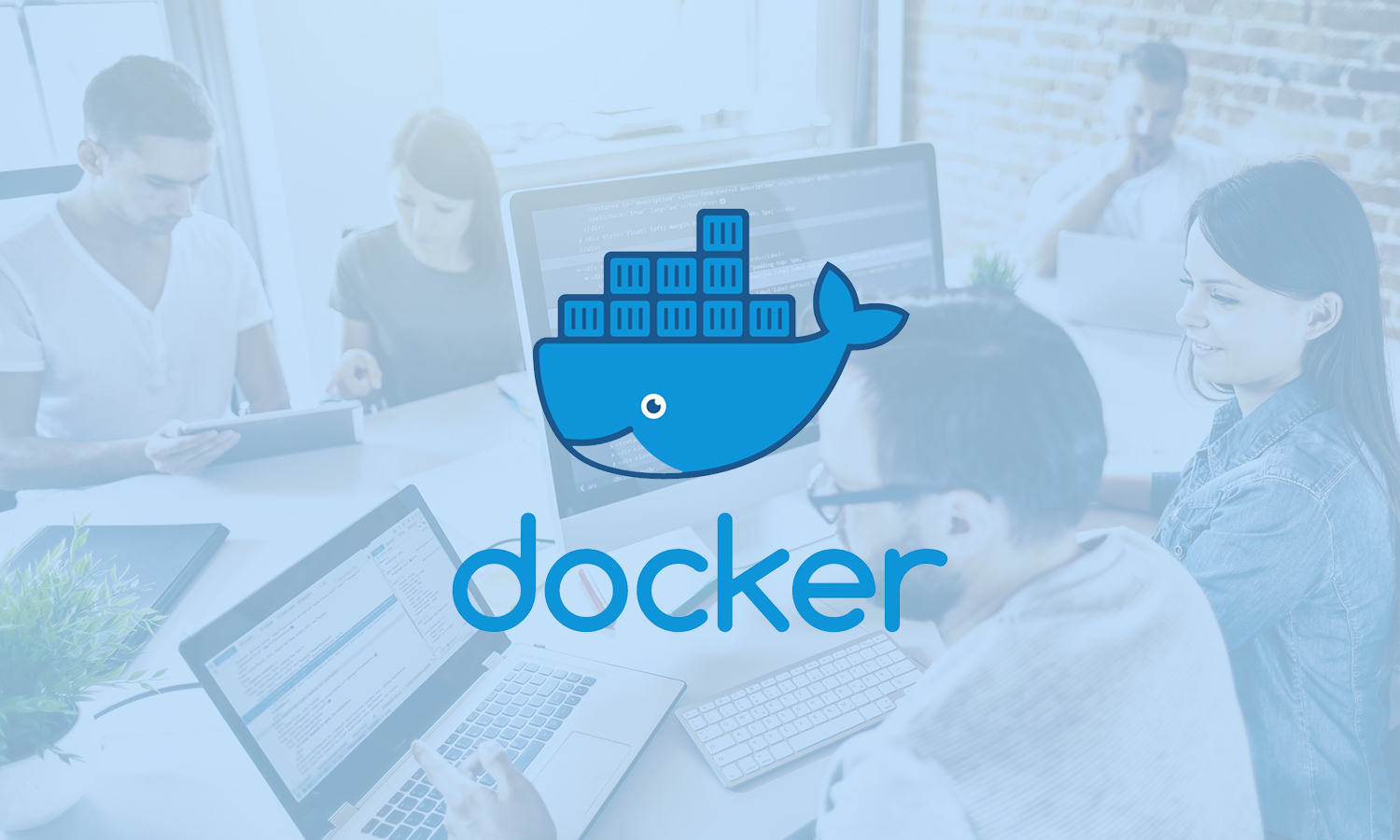It was six years ago when Solomon Hykes introduced the technology world to Docker. Ever since then they have been quite prominent in this domain and have exploded in popularity and usage. It was in June 2014 that the release of Docker 1.0 came along, and since then there has been no looking back for Docker.
More and more companies are adopting Docker at such an incredible rate. They are quite enthusiastic to move their server applications from virtual machines to the containers. Need not be told that containers have absolutely taken us by storm any new application without the containerization feels as if it is missing something. In fact, today Docker and its open-source father, named Moby have reached great heights. And as per Docker, presently more than 3.5 million applications have been placed in the containers that use Docker technology and more than 37 billion containerized applications have been installed.
It won’t be wrong to say that Docker has established itself as the king in the container domain and in this post we will be discussing in-depth about why you should be using Docker for your development environment.
What is Docker?
In the world of IT, these days it is quite common to see the applications being run in containers instead of the virtual machines. This technology is among the fastest-growing in recent times and at its heart is found, Docker. Docker is a platform enabling the users to easily pack, distribute, and managed the applications within the containers. It can also be called as an open-source project that automates the deployment of the app inside the software containers.
Docker by using containers makes the creating, deploying, and running applications really easier. Containers enable the mobile app developers to package up an app with all the parts it requires, like libraries and other dependencies, and ships it all out as one package. This way, the developers are assured that the app will be running on any other Linux machine regardless of any customized settings that the machine might have that might differ from machine used to write and test the code.

Some Facts and Statistics related to Docker
- Top technologies today run on Docker.
- Ruby, Node, Java, and PHP are the main programming frameworks that are used in the containers.
- The real docker adoption is around 30 percent in a year.
- Usually the adopters 5x their containers and the docker adopters nearly quintuple the average number of running containers that they have in production between their first & tenth-month use.
- Around two-third firms that try using Docker, end up adopting it. Most firms that adopt Docker, do it only within 30 days of the initial production usage and virtually all of the remaining adopters convert within 60 days.

Source: Docker
Benefits of using Docker
There is a reason why big firms like PayPal, ING, Spotify, and ADP continue using Docker. It is its efficiency that makes the adoption of Docker grow at such a fast pace. So here let’s find out the many benefits of Docker.

Increased ROI
The first and foremost advantage of Docker usage is the return on investment (ROI). In fact, most of the management decisions while picking up a new product is based on the ROI. The more costs a solution drives down while raising profits, the better is the solution, mainly for the big and established companies that need generating steady revenue in the long term.
In this regard, Docker can be helpful to facilitate this kind of savings by dramatically reducing infrastructure resources. The nature of Docker is such that it requires few resources to run the same applications. And owing to Docker’s reduced infrastructure requirements, organizations succeed in saving on everything from the server costs to employees that are required for maintaining them. With Docker, engineering teams can be small yet more effective.
CI efficiency
With Docker, it is easier to build a container image and then use the same images across every step of the deployment procedure. Its biggest benefit is that it allows to separate the non-dependent steps and then run them in the parallel. The time length taken from building to production can be remarkably sped up.
Isolation and Segregation
With Docker, your applications & resources are isolated and segregated. It is ensured that Docker that each container is having its own resources which are isolated from the other containers. One can have different containers for separate applications that run completely different stacks. With Docker you get clean up removal as here all applications run on their own containers. If an application is of no use any longer, then you can delete its containers. There won’t be any temporary or any configuration files on your host Operating system. Among the many of its other benefits, one is also that Docker ensures each application only uses the resources assigned to them. A specific application is not going to use all the available resources, which usually leads to performance degradation or complete downtime for the other applications.
Security
This again is one major benefit of Docker. Security-wise, Docker ensures that applications run on containers that are totally segregated and isolated from one another, hence granting complete control over the traffic flow & management. Absolutely no Docker container looks into the processes that run inside another container. Looking from an architectural point of view, every container has its own set of resources that range from processing to network stacks.
Multi-Cloud Platforms
This is one really big advantage of Docker. In the past, sometime, all major cloud computing providers, consisting of Google Compute Platform (GCP) and Amazon Web Services (AWS) embraced Docker and added individual support. One can run the Docker containers inside a Google Compute Engine instance, Amazon EC2 instance, VirtualBox, or Rackspace server, but only when the host OS supports Docker. This way, a container that runs on an Amazon EC2 instance can be ported easily between the environments, like to Virtual Box, attaining similar consistency & functionality. Docker also works efficiently with the other providers such as OpenStack, Microsoft Azure and it can be used with several configuration managers, such as Ansible, Puppet, Chef, etc.
Continuous Deployment and Testing
Another great attribute of Docker is that it offers consistent environments from the development to production. Here its containers are configured to internally maintain the configurations & dependencies. This way, the same container can be used from the development to production ensuring that there is no discrepancies/manual intervention.
If an upgrade needs to be performed during the release cycle of a product, necessary changes can be made easily to the Docker containers, testing can be done, and the same changes can be implemented to the existing containers. This is yet another flexibility of Docker usage. Docker enables to build, test & release images that be deployed across various servers. When a new security patch is available, the same process can be done, applying the patch, test it and then release that to production.
Rapid Deployment
With Docker, the deployment reduces to just seconds. It is because it creates a container for each process and it doesn’t boot an OS. Here the data is easily created and destroyed sans any worry that cost to get it again is going to be higher than affordable.
Simplicity
Among the many benefits of Docker one is that it simplified the matters. This way users will be able to take their own configuration, put it into the code, and then deploy it without issues. Owing to Docker’s ability to be used easily in wide-ranging environments, the infrastructure requirements are no longer linked with the application environment.
Parity
Among the many benefits that Docker has, one is parity. In here, parity means that your images would run just the same regardless of which server or whose devices they are running on. This way, developers would need to spend less time to set up environments, debug environment-specific issues, a more portable, and easy-to-setup codebase. With parity, your production infrastructure will also be more dependable and easy to maintain.
Standardization and Productivity
With Docker containers, consistency can be ensured across multiple developments, release cycles, and standardizing the environment. Among the many advantages of a Docker-based architecture, one is standardization. With Docker, one gets repeatable development, build, test, & production environments.
The standardization of the service infrastructure all across the pipeline allows every team member can work on a production parity environment. This way engineers will be more equipped to proficiently analyze& fix bugs within the application. Hence, the time wasted of the defects reduces and the time available for the feature development increases. With the Docker containers, one can make changes to their Docker images and version control them. Like, when a performed component upgrade breaks the whole environment, it gets easy to switch back to the previous version of the Docker image. This entire procedure can be tested in very little time. Docker is pretty fast and it allows to make quick replications and attain redundancy. At the same time, Docker images can be launched very quickly.
So, these were the many benefits of Docker and its containers. Today most companies are going for it and if you are looking to get one, then get in touch with a good mobile app development company right away.



















